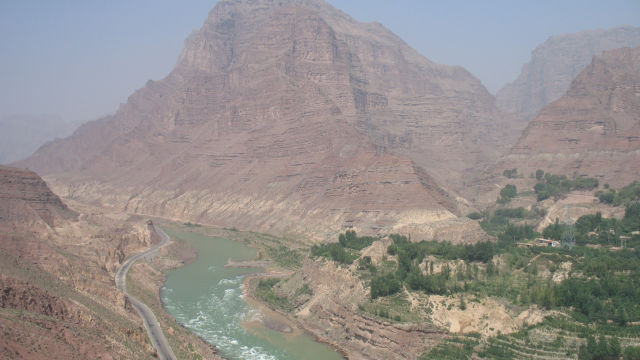
Incredible discovery reveals the truth behind an ancient Chinese legend
Ancient Chinese legends tell of a catastrophic flood along the Yellow River that led to the founding of the Xia dynasty, roughly 4,000 years ago. A legendary hero named Yu is said to have established the Xia dynasty after figuring out how to stop the flood waters by dredging, thus marking the dawn of Chinese civilization with a feat of landscape engineering. Now, a group of geoscientists and archaeologists in China has discovered that this flood actually happened.
The group's recently published findings in Science magazine explain how they found traces of this historic deluge. For more than a century, archaeologists have looked for evidence that could shed light on historical accounts of early Chinese civilization, such as those in first century BCE book Shiji (史記, traditionally translated as Records of the Grand Historian). Many accounts in the Shiji have turned out to be fairly accurate, especially when it came to the Shang dynasty that followed the Xia. Because the Shang dynasty civilization had writing, scientists have been able to verify the Shiji's accuracy from written records as well as material remains.
Much about the Xia dynasty, however, remains mysterious. Although this Bronze Age civilization was highly sophisticated, it did not use writing, and the only accounts we have of it come from stories of the great flood that Yu controlled. Now, scientists are certain there was a megaflood on the Yellow River in roughly 1900 BCE. Ancient Chinese historiographers placed the rise of the Xia dynasty during the 2200s BCE, so their dates were about 300 years off. But whenever it happened, the flood was so devastating and enormous that the archaeologists who discovered it have no doubt that it would have left a lasting impression on any civilization that experienced it.

/https://public-media.si-cdn.com/filer/9f/61/9f610676-9962-4627-ae89-bf59fc6cb735/lod_mosaic_lower_register_web.jpg)








/cdn.vox-cdn.com/uploads/chorus_asset/file/25472454/STK270_GOOGLE_MAPS_D.png)











